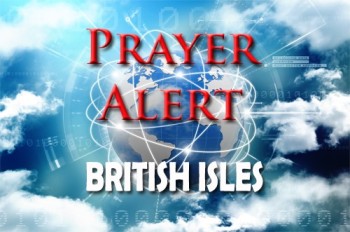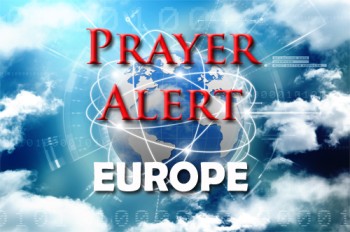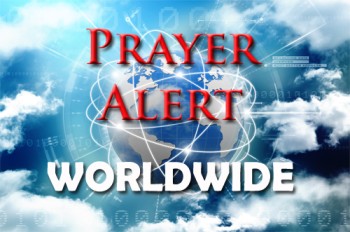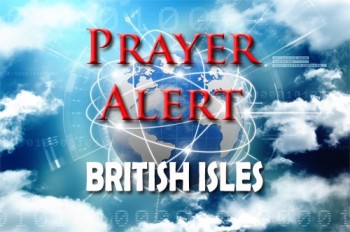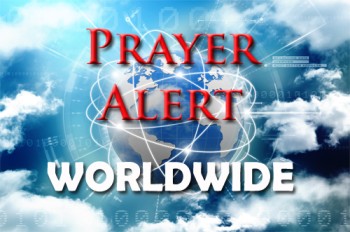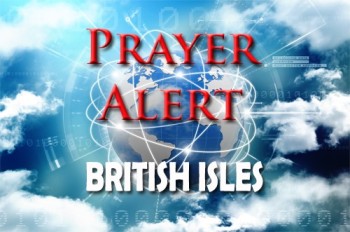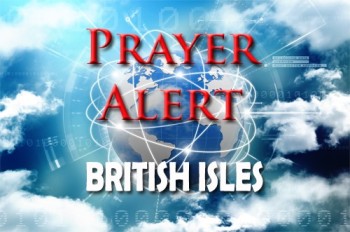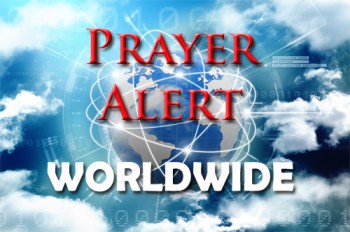Displaying items by tag: controversy
Controversial proposed oil field publishes climate impact figures
The full environmental impact of the proposed Rosebank oil field, the UK’s largest undeveloped fossil fuel site some eighty miles north-west of Shetland, has now been revealed - and it is vast. The developers, Equinor and Ithaca Energy, have admitted that burning Rosebank’s oil and gas could release nearly 250 million tonnes of carbon dioxide over 25 years, equivalent to two-thirds of the UK’s current annual emissions. The figure, which dwarfs earlier estimates, follows a court ruling requiring a full assessment of the climate impact not just of extraction, but of using the fuels themselves. Environmental groups, including Greenpeace and Uplift, call the figures a stark warning that Rosebank is incompatible with Britain’s 2050 net-zero goal. The Government’s final decision, due after public consultation closes in November, will test its climate credibility. While the developers claim the emissions are ‘not significant’, critics insist that approving Rosebank would lock the UK into decades of pollution and contradict its clean energy ambitions.
Greece: parliament set to approve thirteen-hour workday
Greece is poised to introduce one of Europe’s most controversial labour reforms - a thirteen-hour workday for private-sector employees. The new legislation, expected to pass parliament despite widespread protests, would allow workers in industries such as manufacturing, retail, and hospitality to take on a sixth workday and extended hours, with higher pay for overtime. The government argues that this flexibility will help address labour shortages and support economic growth amid an aging population. However, unions and opposition leaders have condemned the move as a step backward, heightening job insecurity, disrupting work-life balance and legalising overexploitation. One in five Greeks works more than 45 hours a week, the highest rate in the EU, and outdone by only four other countries in the world; low salaries force many to work two jobs to cover the soaring cost of living, in particular high housing costs. Officials insist the extra hours will be voluntary and regulated, but many groups are deeply sceptical.
USA: Trump says ‘we’re going in’, sends National Guard to Chicago
Donald Trump has announced plans to deploy National Guard troops to Chicago, describing the city as a ‘hellhole’ plagued by violent crime. He hinted Baltimore could be next, insisting his actions are not politically motivated despite targeting Democratic-led cities. Illinois governor JB Pritzker and Chicago’s mayor strongly opposed the move; Pritzker called it an ‘invasion’, stating that murders have fallen nearly 50 percent in four years. There have already been protests in Chicago expressing opposition, as residents fear further unrest. The announcement follows Trump’s controversial use of troops in Washington and Los Angeles, where a federal judge has recently ruled he overstepped legal boundaries. The judge said that Trump appears intent on ‘creating a national police force with the President as its chief’. He has barred National Guard troops or marines from performing police functions: however, this will come into effect only on 12 September, potentially leaving an opening for the conservative-dominated supreme court to rule on the case.
Farage says Church leaders 'out of touch' on immigration issue
Reform UK leader Nigel Farage has defended his hardline immigration plan, ‘Operation Restoring Justice’, which would see all illegal Channel crossings - including those by women and children - met with deportation if his party won power. He argued that the proposals align with Britain’s Judeo-Christian heritage, despite opposition from Church leaders, whom he accused of being 'out of touch' with ordinary believers. Farage suggested that criticism from bishops and 'The Establishment' was inevitable, but insisted meaningful change often comes through struggle. His plan includes withdrawing from the European Convention on Human Rights, scrapping the Human Rights Act, and suspending treaties used by courts to block deportations. Labour dismissed the proposals as an 'unworkable gimmick,' while Conservative leader Kemi Badenoch accused Reform of copying Tory policies. The announcement follows rising protests near asylum seeker accommodation and record asylum claims in 2024. Reform UK claims it could deport up to 600,000 people in its first term. See
Far-right link taints ‘patriotic’ grassroots flag movement
A grassroots campaign called 'Operation Raise the Colours' has seen activists in over a dozen English towns hoisting hundreds of Union and St George’s Cross flags on lampposts. Organisers claim the movement aims to restore national pride and community spirit, with some £13,000 raised to buy flags. However, its credibility has been damaged by links to far-right groups. Britain First donated 250 flags, and organiser Andy Saxon has publicly supported its leader Paul Golding and activist Tommy Robinson. Britain First, with roots in the BNP, is notorious for promoting 'remigration' and anti-Muslim rhetoric; its leader has criminal convictions for religiously aggravated harassment. Critics warn that what is presented as patriotism risks being hijacked by extremist groups. Councils in Birmingham and Tower Hamlets have removed flags, citing safety and political concerns, while twelve Reform UK-controlled councils have pledged not to take them down, calling removals 'shameful’. The controversy highlights how national symbols can be co-opted into culture wars, deepening division rather than fostering unity.
Israel: plans to build 3,000 houses in contested West Bank settlement area
Far-right finance minister Bezalel Smotrich has announced plans to approve over 3,000 housing units in the contested E1 settlement area between Jerusalem and Maale Adumim in the occupied West Bank. Long frozen due to international opposition, the project would physically separate East Jerusalem from the rest of the West Bank, undermining prospects for a contiguous Palestinian state. Smotrich declared the plan would ‘bury the idea’ of such a state, describing it as an assertion of Israeli sovereignty. Settlement expansion is considered illegal under international law, though Israel disputes this. The announcement comes amid growing international momentum toward recognising Palestinian statehood, which Israel opposes. Critics warn that the move deepens annexation, fuels conflict, and blocks the path to peace. Smotrich, together with national security minister Itamar Ben-Gvir, was sanctioned by the UK in June over ‘repeated incitements of violence against Palestinian communities’ in the occupied West Bank: see
Peru: president issues amnesty for hundreds accused of atrocities
President Dina Boluarte has signed a contentious law pardoning soldiers, police, and civilian militias accused or convicted of atrocities during Peru’s 1980–2000 armed conflict against Maoist rebel groups Shining Path and Tupac Amaru. The measure, despite an order from the Inter-American Court of Human Rights to suspend it, will release those over 70 and halt or overturn more than 600 trials and 156 convictions. Peru’s Truth and Reconciliation Commission estimates that there were 70,000 deaths and 20,000 disappearances during the conflict, with state forces responsible for significant abuses, including 83% of documented sexual violence cases. Human rights organisations and UN experts have condemned the law as a betrayal of victims and a blow to decades of accountability efforts. Critics warn it undermines justice for survivors of massacres, torture, and enforced disappearances, while supporters describe it as honouring those who fought insurgency. The law deepens debate over justice, reconciliation, and impunity in Peru’s fragile democracy.
Victims furious after CofE rejects full independent safeguarding
Sexual abuse survivors have reacted with anger and disappointment after the Church of England's General Synod rejected a move to full independent safeguarding, instead opting for a partially independent model. Survivors had urged the Church to transfer all safeguarding officers to an external independent body, removing bishop oversight, but Synod members delayed full independence, promising only 'further work' on the issue. Advocates condemned the decision, calling it a failure to restore trust and accusing the Church of 'marking their own homework'. Survivor advocate Andrew Graystone called the decision 'shocking arrogance'. The Church has faced multiple safeguarding scandals, leading to former Archbishop Justin Welby’s resignation. His temporary replacement, Archbishop Stephen Cottrell, admitted to past failures but defended the new model, calling it a step toward greater independence. Critics, however, see it as delaying much-needed reform and a betrayal of abuse victims.
Labour civil war erupts over possible Heathrow expansion
A rift within the Labour Party has surfaced over reported plans by Rachel Reeves to approve a third runway at Heathrow and expand operations at Gatwick and Luton airports. While she emphasises economic growth as the Government’s priority, several high-profile Labour figures, including Greater Manchester mayor Andy Burnham and London mayor Sadiq Khan, have voiced strong opposition. Burnham argues that prioritising airport expansion in the South could hinder infrastructure investment in northern England and concentrate growth in London. Khan cites concerns about worsening air quality, increased noise, and the impact on London’s net-zero emissions target by 2030. Key Labour figures, including Keir Starmer and Ed Miliband, spoke against Heathrow’s expansion while they were in opposition. Reeves has countered criticism by stating that Britain’s reluctance to approve major projects has stalled economic growth. The debate highlights tensions between economic ambitions and environmental sustainability within Labour’s leadership.
USA: Trump’s shocking cabinet appointments
Donald Trump has initiated a bold and controversial strategy for his return to power, unveiling cabinet appointments which embody his disregard for traditional governance. These selections, including individuals with histories of legal trouble, extremist ideologies, and controversial actions, aim to dismantle governmental structures Trump perceives as obstacles. Key appointments, such as Pete Hegseth as secretary of defence, reflect his intent to politicise institutions like the military, while figures like Robert F Kennedy Jr as health secretary highlight his disdain for scientific consensus. Others, such as Vivek Ramaswamy and Elon Musk, are to downsize federal agencies radically under a vaguely defined ‘department of government efficiency’. Trump’s intent to bypass Senate confirmation through recess appointments signals his push for one-man rule. His nominations seem to be not only instruments of policy but tools of intimidation and revenge, targeting perceived enemies and undermining traditional checks and balances in favour of centralised authority.
